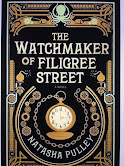Book Review: Memories Are Made of This
Star Trek: Living Memory by Christopher L. Bennett
Author Christopher L. Bennett has returned to the Star Trek universe with Star Trek: Living Memory released June 15, 2021. That’s Original Series, and it takes place in between Star Trek: The Motion Picture and Star Trek II: The Wrath
of Khan. The time between films, between episodes, and, of course, between the end of the original series and the start of The Motion Picture, are fertile ground for story tellers. I’ve always been intrigued by this particular period. So much must have happened. The uniforms changing, Spock becoming a captain, Chekov joining the crew of the Reliant. There’s a lot to explore. The story even manages passing references the true Trek fan will find delightful.
At this point in their history, our favorite characters aren’t serving together on the Enterprise, but rather they are serving on different ships and in different capacities within Starfleet.
Admiral Kirk is now Commandant of Cadets at Starfleet Academy, and it’s in this capacity that an Arcturian Commander named Rakatheema persuades Kirk to sponsor his request to allow certain members of Arcturian society to attend Starfleet. Controversial is an understatement in this case. With potential political and ethical ramifications, this is a situation fraught with problems and pitfalls—and, of course, drama.
Meanwhile, other favorite characters on myriad other Starfleet vessels are deep into an investigation of strange galactic storms. More curious than dangerous at the beginning, the storms grow in strength, size and frequency becoming a threat to the Federation, and it’s somehow connected to Commander Uhura’s past.
Here’s where things get interesting: Uhura doesn’t remember her past.
In a second season Star Trek episode entitled The Changeling, a probe called Nomad wipes Uhura’s mind. With Uhura’s memory gone, the only solution available to the crew was to re-educate her. I cannot begin to tell you how much this episode upset me when I was eight years old. I remember shouting at the TV screen that you couldn’t just “re-educate” Uhura and send her back to work. Without her childhood memories and experiences, she would be a different person. We are a combination of nature and nurture after all, and without the pivotal relationships of her early years I knew that Uhura couldn’t be the same person she’d been up to this point. It troubled me, and I don’t think I ever got over it.
It appears I wasn’t the only one. Bennett has written a book that I wish I could send back in time to my eight year old self! Shedding light on what happened to Uhura, how she dealt with the loss of memories, and the loss of self, and how her friends and colleagues helped her adjust is just part of why I adore this book. Not least of which is that it got me to thinking (Good books do that!) about how Christine Chapel, Dr. McCoy, and Uhura’s canonical best friends, Sulu, Chekov, and Scotty, managed to bridge the gaps in her knowledge and encourage her to be her best—albeit a different best than she’d been before. Given that they couldn’t have known everything about her, and that she must have gotten at least some information about her past from official records and her own logs and journals, Lt. Uhura’s triumph in recovering from her encounter with Nomad is phenomenal.
In this story, Uhura’s past is linked (in a creative way) to what’s going on with the storms, and only if she—and someone she doesn’t remember—can recreate a project that relied on Uhura’s now gone eidetic memory, will they have any chance to save a large portion of the Alpha Quadrant.
Uhura’s dealing with a lot in this—I almost called it an episode! She has to reconnect with friends and colleagues and even family members she hasn’t seen in years, and try to reconcile what they say with what she’s trying to learn AND with what she has come to believe about herself and her past. The things she’s pieced together over the years aren’t always as accurate as they could be given that she doesn’t remember much except emotions brought to the surface by certain faces or names.
The mystery of Uhura’s lost past combined with the satisfying roles she, Sulu, and Chekov play in the story land this book a spot in my list of favorite Star Trek books. I wish I could see this story as a movie!
The details of the story are sublime in their intricacy. We get to meet so much of Uhura’s family and see them interacting with her—and these are not sweet-as-cream relationships. There’s history, complication, and misunderstandings—even if Nyota Uhura can’t recall it all. You can’t help but feel for all of them and what they lost when Nomad wiped Uhura’s memories.
Bennett is a top-notch author, and even when I’m unsure about buying a new Trek book, it’s always a no-brainer if it’s one of his. This one is cream of the crop. It feels almost personal to me because I’ve so long found it troubling that the series treated her memory loss as an aside, even using it as a basis for jokes. Sixties television hadn’t much time for tying up loose ends or for acknowledging the true complexities of the consequences of the stories they told. Often gaps were left for fans to ponder or else to be forgotten slipping through the cracks of more popular bits and pieces.
I’m glad this particular story gap inspired Christopher L. Bennett.







Comments
Post a Comment